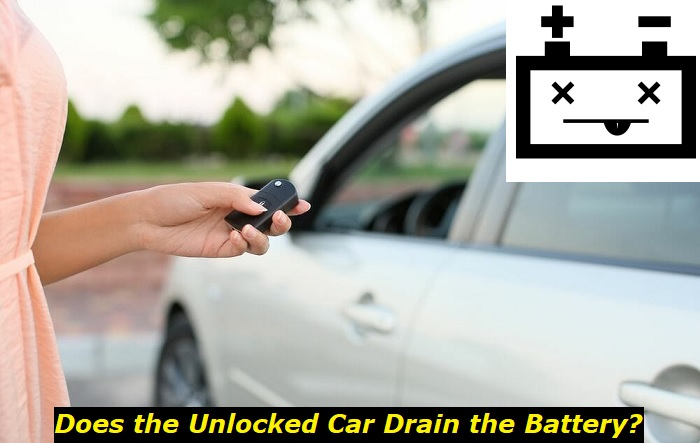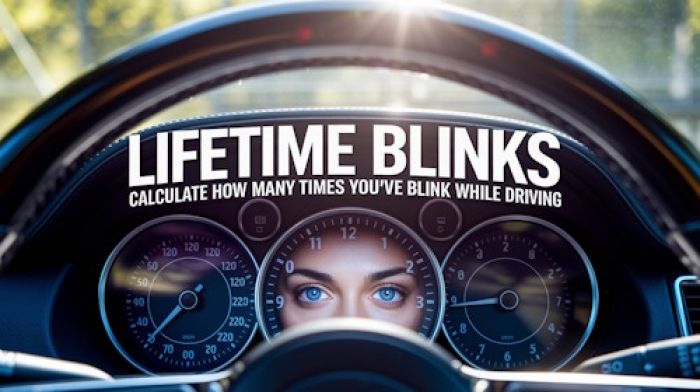Leaving your car unlocked won't drain its battery's power. Many vehicle owners have suspected the unlocked doors to be the culprit, but think of it as a myth. Some contributors on online forum threads concerning this issue have even claimed that they leave their cars unlocked ALWAYS when parked at home.
Battery drains highlights
- Level of importance:high
- Methods to locate:disconnect everything that can cause drains
- Consequences:dead battery
- Prevention:driving style adjustment, no extra equipment
- DIY fixes:possible but complicated
- Price to fix:$100 - $600

First Thing To Do When Your Battery Drains Without an Obvious Cause
It will be good to have a personal scan tool in this situation. This is because the scan results may bring up error codes that will point directly to the source of the problem. And you may be able to carry out a fix on your own without the need to go to an auto repair workshop.
Dealing with a "Pros" at an Auto Repair Shop
The diagnostic scanner will still be of help when you don't want to go the DIY way. It will save you money on diagnosis and repair bills at the mechanic's workshop.
You can simply tell the mechanic what's wrong with your car or what's draining the battery power, and the technician will proceed to implement a fix. Noting the DTCs (diagnostic trouble codes) that were displayed on the scan result screen will help in your description. Interpreting the codes should be an easy thing for a seasoned "pro".
Using a personal scanning device will also save you from being scammed by dishonest auto technicians. It's easy for a shady mechanic to take advantage of cases such as the search for an inconspicuous source of battery drain. The mechanic could charge you based on an exaggerated service description.
Make sure that you ask the auto repairer to use a scan tool to diagnose the vehicle before conducting a series of complex physical checks. And ensure that you'll be allowed to see the scan results before the process begins.
With the above tips put into action, you'd avoid being scammed of possibly hundreds or thousands of dollars. It could be an unnecessary vehicle test or a series of tests that could take hours of labor. It could also be an unnecessary replacement or repair.
The Complexity of Modern Cars and Their Energy Demands
Recent-year model cars have batteries that pack so much power for the vehicle's many functions. The features that such cars offer are energy-hungry capabilities that can take a lot of battery charge if left to work for a long time.
It may be difficult to notice what's taking a lot of power at any point in time because of the complexity of a vehicle's systems. This is coupled with the fact that most of the car's systems are hidden, especially the moving ones. Then there are the electronic systems or electrically-triggered mechanisms to worry about.
For example, we have the fuel pump that is triggered when the ECU (electronic control unit) supplies the pump's relay with electrical power. The pump could run unnecessarily in a situation where it keeps priming and not shut off even with the ignition put to "on" after the pre-determined timing.
Your car's battery will get drained if the fuel pump doesn't stop priming or if you notice this abnormality and do nothing. This is just one of the many power-wasting situations that we know of. But there'll be more to read about soon.
Ten Factors That May Be Causing the Battery Drain in Your Car
Realizing that your car's battery is flat can be a hassle, especially when there's no visible cause. That's why we decided to present this section to you. See other common causes of battery drain in an automobile below.
1) Self-Discharging
A standard lead acid battery will normally drain at 0.1 volts monthly, even when removed from the vehicle and kept on a shelf. That may not seem like a lot, but it makes sense when you consider certain battery charge and discharge conditions.
2) Continuous Power Draw When the Car Is Parked
Even when the vehicle is off, power will be utilized for features like the radio, clock, alarm system, etc. Although such functions shouldn't have significant effects on the battery charge.
However, features in modern cars such as the engine cooling systems, telematics control unit (TCU), and so on will keep working after you switch off the ignition.
3) Opening the Trunk/Doors
Every time the trunk or doors are opened, the vehicle will come to life with certain systems triggered. The door and interior lights will use power at that moment.
The process of unlocking and locking the vehicle will take significant power if done repeatedly without driving the car for months. Think of it as a leaky tap with the drops filling a bucket after a period. Unlocking and locking can draw about 50 amps from the battery.
4) Keeping Your Key in the Door Keyhole, Close To the Car, or Inside
It could be bad for the battery if the key is left in any of such positions all through the night. The key fob or transponder may continue to communicate with the vehicle because of the wireless connectivity. The result will be a drained battery by morning. Your worst nightmare will be to leave the key in the ignition.
5) Going On Several Short Drives
Taking the car for many short trips, especially within a city could lead to significant battery drain. It could take around 150-350 amps of power just to start the vehicle. Now imagine doing so many times in a day.
The alternator won't be able to have adequate time or capacity to replenish the power being used. It's only a matter of time before the battery goes flat-maybe on one of those nice short trips.
6) Parasitic Power Drain
A parasitic energy drain in a car could be caused by the headlights being on unnecessarily, a malfunctioning dome-light switch, or any other electrical culprits. You can avoid parasitic drains by switching off every light or checking if they're illuminating.
Also, ensure that the glove box, trunk, doors, and so on are well-closed and locked when you want to stop using your car. Remember the abnormal fuel pump priming issue we mentioned earlier? That's another case of parasitic vehicle battery power drain.
7) Alternator Defect
A car relies on its battery when the engine is fired up. But it's the alternator that keeps the battery charged while the car is running or when you're driving. A malfunctioning alternator will mean that the battery can't be charged and the latter may not have enough charge to start the car next time.
8) Very low Temperatures/Cold Weather
Very low temperatures, particularly in cold weather can adversely and significantly affect a battery's performance. The worst will be the freezing temperatures in the winter. Your battery may be straining itself and losing power as it gets stressed by the cold.
You may be able to detect signs of an underperforming battery by trying to take notice of any abnormality in the way the vehicle starts. Monitor the performance of the electronics or electrical systems as well.
9) Sulphation
A chemical reaction called sulphation may begin to occur when the battery charge becomes less than 12.4 volts. This situation is dependent on the battery type.
Sulfate crystals will be formed on the battery's plates during the reaction, thereby resulting in battery degradation, capacity reduction, and cranking potential.
Keep in mind that your car being able to start at a battery charge of 12.4V doesn't mean that sulphation isn't taking place. The unit will actually be dying at that moment!
Note: Most units returned under warranty aren't usually defective. They were only discovered to be experiencing sulphation.
10) Elapsed Battery Life Span
Your battery may not last up to its stipulated lifespan. It all depends on how it has been used over the years, your maintenance culture, and the conditions that the unit has been put through. Take good care of your battery or it's life span could be shortened to as low as 2-3 years.
Conclusion
Your battery draining to the point of being flat is a serious matter that you must try to avoid. It can cause other problems in the vehicle which could prove to be a great hassle to diagnose and repair. At least, try to check if everything that needs to be off isn't getting power before going to bed at night.
Take the vehicle to a reputable auto repair workshop to check the car when there's no obvious source of the problem. This is because embarking on DIY is like a journey into the unknown that could take so much time. It may be an easily diagnosable abnormality that only a seasoned expert can quickly discover.
About the authors
The CarAraC research team is composed of seasoned auto mechanics and automotive industry professionals, including individuals with advanced degrees and certifications in their field. Our team members boast prestigious credentials, reflecting their extensive knowledge and skills. These qualifications include: IMI: Institute of the Motor Industry, ASE-Certified Master Automobile Technicians; Coventry University, Graduate of MA in Automotive Journalism; Politecnico di Torino, Italy, MS Automotive Engineering; Ss. Cyril and Methodius University in Skopje, Mechanical University in Skopje; TOC Automotive College; DHA Suffa University, Department of Mechanical Engineering






Add comment